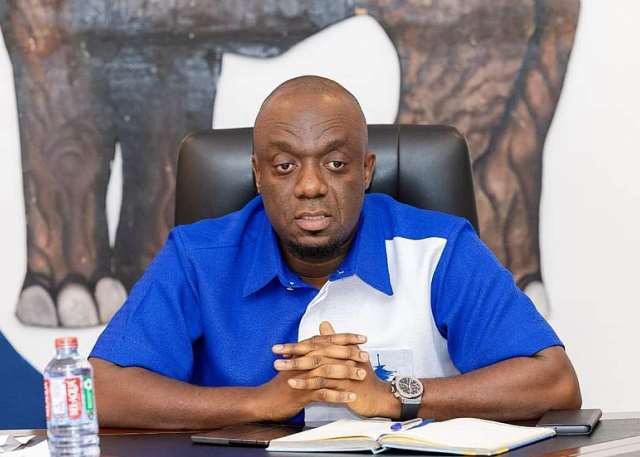It remains one of the most shocking moments in Ghana’s political landscape—a sitting Member of Parliament convicted of drug trafficking. In 2005, Ghanaians were stunned to learn that Eric Amoateng, then MP for Nkoranza North in the Brong-Ahafo Region, had been arrested in the United States for trafficking cocaine.
The Arrest That Stunned a Nation
Eric Amoateng, who was elected on the ticket of the New Patriotic Party (NPP), was known for frequent visits to the United States. Unbeknownst to many, he had allegedly been using these trips to traffic cocaine. His covert activities came to a halt when he was eventually arrested and charged in the U.S.
The arrest occurred under the administration of President John Agyekum Kufuor. Initially, some Ghanaians hoped the arrest was a mistake—perhaps a case of kokonte (dried cassava flour) being mistaken for cocaine. But that hope faded fast.

Found Guilty and Sentenced to 10 Years in the U.S.
A U.S. court found Eric Amoateng guilty of drug trafficking and sentenced him to a 10-year prison term. The conviction rocked Ghana’s political and social circles, deepening public mistrust in the Kufuor-led government, which had already been plagued by rumors of high-level drug trafficking.
The Mysterious “Kokonte Cocaine” Incident
The scandal brought back memories of another infamous episode under the Kufuor administration—when seized cocaine mysteriously turned into kokonte while in the custody of the Narcotics Control Board (NACOB). These incidents led many to question the government’s commitment to fighting narcotics.
Amoateng’s Return to Ghana and Political Resurgence
After serving his sentence, Eric Amoateng returned to Ghana just before the 2016 general elections. His return came during a politically charged period, and some reports suggest that he played a key behind-the-scenes role in the NPP’s electoral victory, which brought President Nana Addo Dankwa Akufo-Addo to power.

Controversial Appointment Sparks Outrage
Following the NPP’s win, Eric Amoateng was allegedly appointed to a position within the Narcotics Control Board (NACOB)—the very agency responsible for combating drug trafficking. The decision sparked national uproar and drew criticism from both local and international observers, who felt it tarnished Ghana’s global image.
Many questioned how a man with a drug trafficking conviction could be entrusted with overseeing narcotics enforcement. During his alleged tenure, drug busts reportedly declined significantly, leading to speculation about whether his influence hindered or helped the fight against narcotics.

NACOB Denies Amoateng’s Appointment
In response to the backlash, NACOB issued an official statement denying that Eric Amoateng had ever served on its board. Despite this denial, the mere rumor of his involvement with NACOB left a lasting stain on the credibility of the agency and the government.
Conclusion: A Dark Chapter in Ghana’s Political Timeline
Eric Amoateng’s story is a stark reminder of how political power can intersect with criminal behavior, and how the perception of justice and governance can be shaped by high-profile scandals. Whether or not he truly served on NACOB’s board, the shadow of his past continues to raise questions about accountability and integrity in Ghana’s public service.

